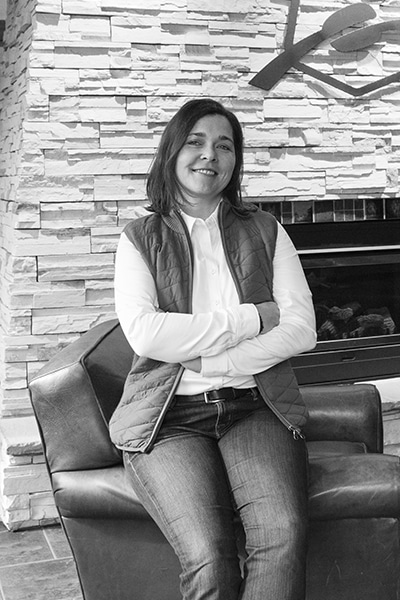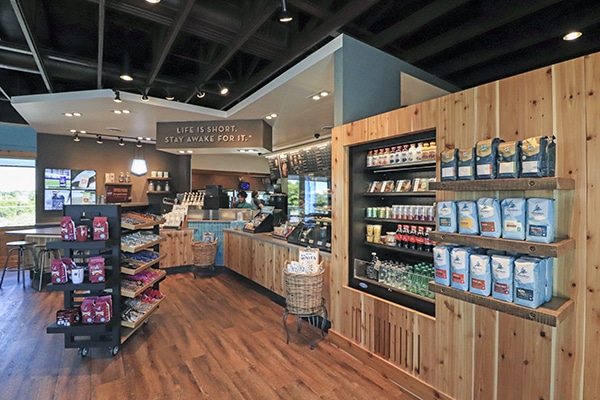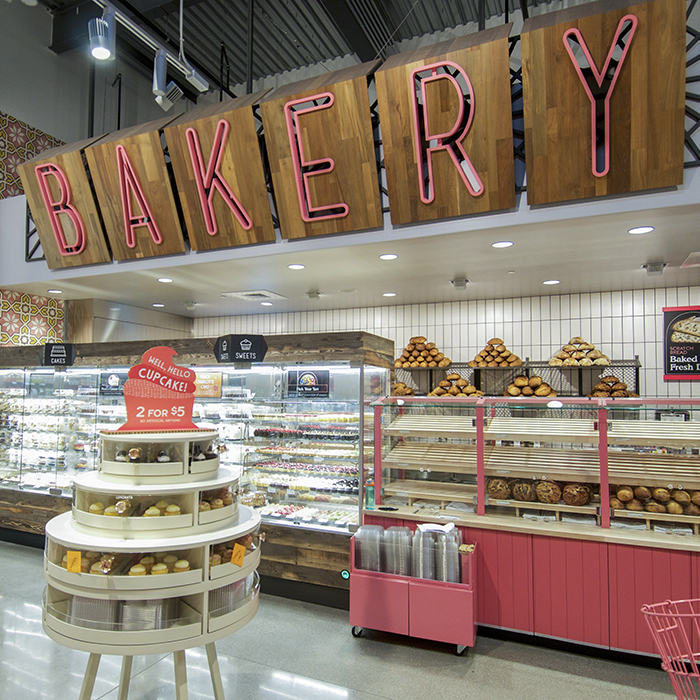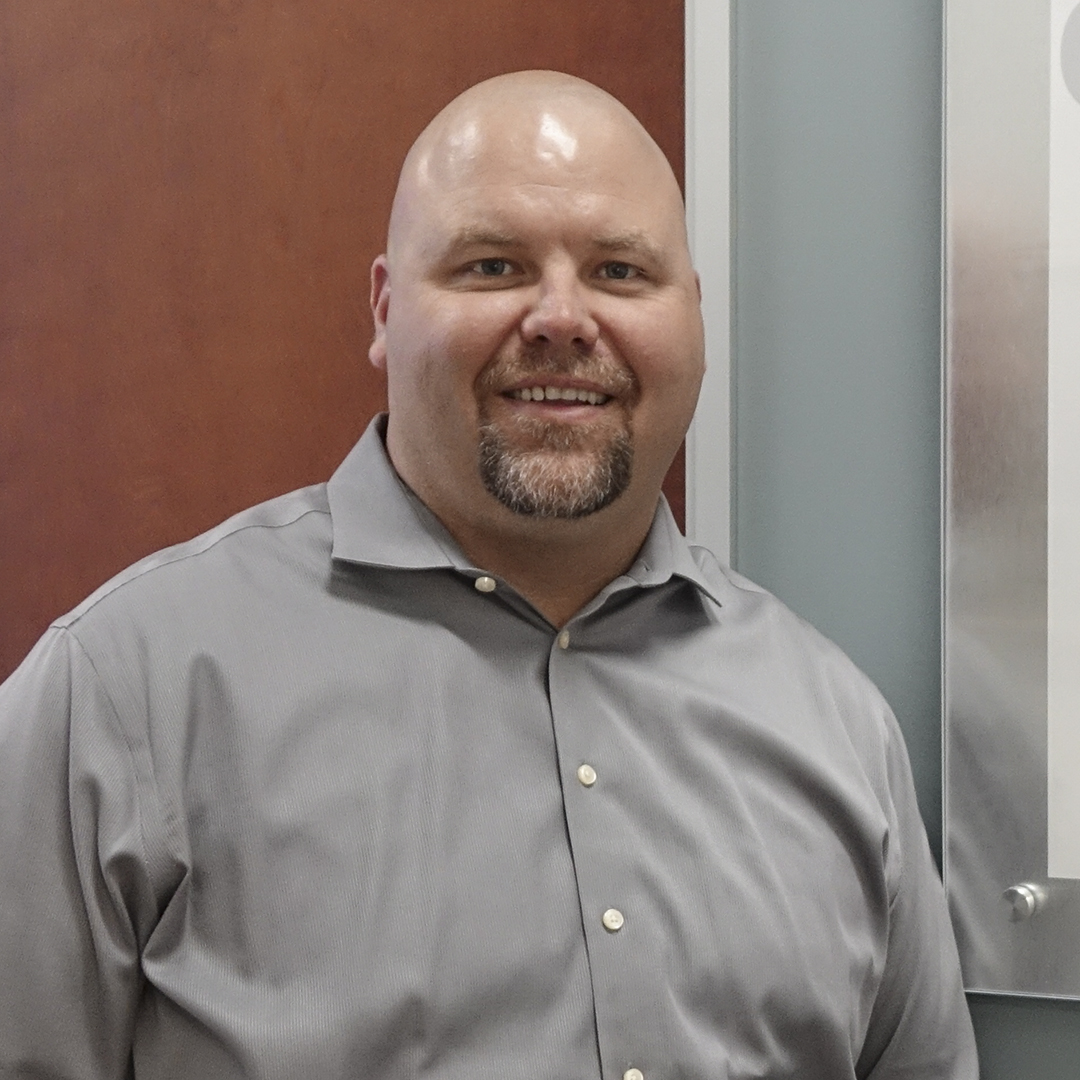Emily Heuring is tapping her expertise as an architect to create a new blueprint of strategic growth at Coffee & Bagel Brands. As the director of construction for the international group of coffeehouses and bagelries, Heuring is applying both the design and business skills she’s cultivated throughout her two-decade career to expand its iconic brands: Caribou Coffee, Bruegger’s Bagels, Einstein Bros. Bagels, Manhattan Bagel, and Noah’s New York Bagels.
“The experience of transitioning to a corporate role from a design firm was very exciting,” Heuring says. “Being a part of bringing concepts to life, working with various players internally, watching contractors put up the finishing touches, and handing over the keys to the operators—I get to see the whole process in play.”

Prior to Coffee & Bagel Brands, Heuring launched her career at the Minnesota-based design firm Wilkus Architects, after earning her bachelor’s degree in architecture and environmental design at North Dakota State University.
After she joined the internal design team for Caribou Coffee, in 2005, she rose through the ranks and reached her current position in 2016. She has administered multimillion-dollar capital improvements for up to 40 new stores and 70 remodel projects annually, achieving a 5 percent cost reduction year-over-year on the new builds and 15 percent savings for the remodel work.
Such results illustrate how store concepts are constantly evolving, and Heuring emphasizes flexibility and team member empowerment as essential skills for both working in construction and managing how multiple, expanding brand identities are reflected in real estate.
Coffee & Bagel Brands consists of one coffeehouse concept and four “bagelries,” each with its own distinct personality, according to Heuring. She describes how Noah’s ambiance is that of a classic New York deli, whereas the atmosphere in Bruegger’s is like a warm, cozy bakery. Einstein Bagels has a quirky neighborly setting, and Caribou Coffee invites guests with a homey environment that feels like a gathering place. (Manhattan Bagel, the fifth brand under the umbrella, is a franchise model, so each store experience can vary, depending on the individual franchisees.)
These five brands came together fairly recently. Noah’s, Manhattan Bagel, and Einstein joined forces with Caribou, where Heuring was already working, in 2014. Bruegger’s was added to the mix in 2017. During this evolution, Heuring stressed the importance of bringing the company cultures together when team building. “Caribou had a historical organizational structure,” she says. “The bagel brands had their own separate organizational structures, and people have their own tool kits, different backgrounds, and ways of doing things.”
Heuring’s approach to assembling the construction team during these changes was to encourage each individual to become an expert in their role. “There has been a lot of integration and leadership changes and evolution, not only to the number of brands but the number of concepts,” she explains. “I try to provide team members with the opportunity to be a resident expert on each brand, dividing and conquering this way and providing individuals with opportunities for growth and recognition.”
Aside from inherent organizational and cultural transformations, Heuring says that the store concepts embodied by Coffee & Bagel Brands continually evolve to align with guest preferences within the market. She recalls that about 10 years ago, Caribou was in the midst of transforming its coffeehouse layout for guest navigation in order to focus on the story of Caribou’s handcrafted food and beverages.
Caribou Coffee remains dedicated to its quality menu offerings, including a commitment to all-real ingredients and carefully sourced coffees. However, the brand is also looking at what guests seek out in the atmosphere of a coffeehouse. “Today we are looking at the Caribou Coffee brand that is 25 years old now,” she says. “We are going back to the roots. The concept started from having a familiar face when you walk in the door, people greeting you, and knowing your drink.”

In fact, Caribou Coffee originated from a trip the founders took to Alaska, and the store concept today is centered on the warm, cozy, familiar, and inviting setting of a Northwoods cabin. In 1992, the brand opened up its first storefront in Edina, Minnesota, and now it spans 18 states and 11 countries. Caribou Coffee is also incorporating localized touches into store design, Heuring says. For example, she cites innovative community tables. “They have imprints in the tabletop that tell you subtly where you are,” she says.
Since Caribou Coffee’s build-out type is typically tenant improvements, there are limited opportunities to customize the exterior of a Caribou Coffee. However, due to its strong brand recognition in its major markets, the store concept can still influence the retail center where it is sited. “Often the landlords will come to us first, and we’ll get to help design their building with some natural stones or natural-looking elements,” Heuring says. “It’s fairly generic and not necessarily ‘Oh this is a Caribou,’ but a natural Northwoods lodge.”
Currently, Caribou Coffee is planning for continued growth, with expansion in the Upper Midwest over the next few years. Throughout this process, Heuring remains focused on change as a major constant in her role. She values adaptability, and, knowing that with constant evolution she will often be fielding questions, she advises others in construction to encourage creativity. “The better you can tell a story, the more effective you will be,” she says.
***
From coffee shops to stadiums, Graybar understands all the technologies that go into your building. From the switchgear outside to the pendant lighting inside, Graybar has the experience and design support to help you keep projects on time and within budget.


